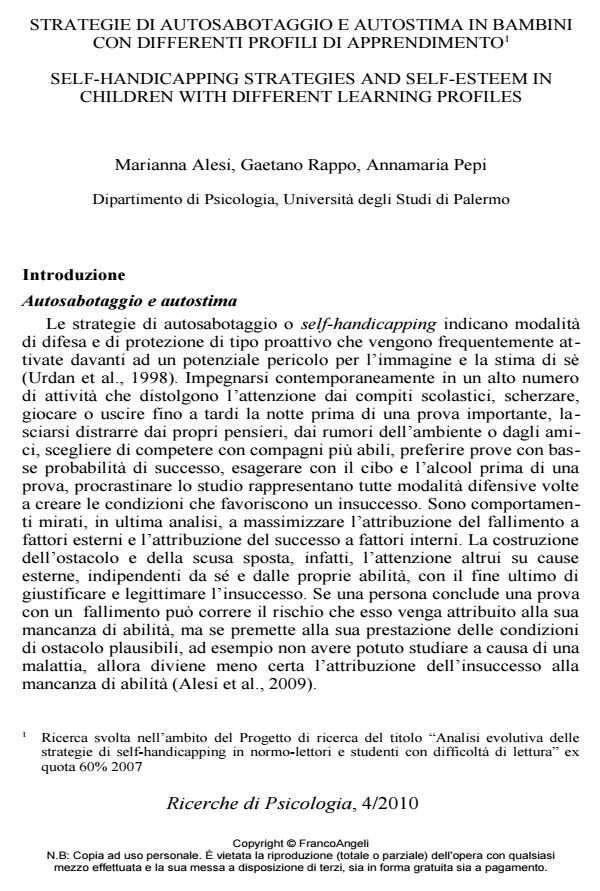Self-handicapping strategies and self-esteem in children with different learning profiles
Journal title RICERCHE DI PSICOLOGIA
Author/s Marianna Alesi, Gaetano Rappo, Annamaria Pepi
Publishing Year 2012 Issue 2010/4
Language Italian Pages 15 P. 505-519 File size 636 KB
DOI 10.3280/RIP2010-004002
DOI is like a bar code for intellectual property: to have more infomation
click here
Below, you can see the article first page
If you want to buy this article in PDF format, you can do it, following the instructions to buy download credits

FrancoAngeli is member of Publishers International Linking Association, Inc (PILA), a not-for-profit association which run the CrossRef service enabling links to and from online scholarly content.
Recent research focuses on the role of self-esteem and self-handicapping strategies in the school domain. In particular self-handicapping refers to maladaptive strategies employed by an individual, when faced with a diagnostic task, to protect him or herself and maintain a positive self esteem. We carried out two studies aimed to compare the self-esteem and the self-handicapping strategies of children with an average age of 8 years attending third grade junior school and with different learning profiles. In particular in the first one we compared two groups: one group with generalised learning difficulties both in reading and mathematical and one group with normal learning level. In the second study we compared three groups: one group with dyslexia, one group with generalised learning difficulties both in reading and mathematical and one group with normal learning level. On the whole, the results demonstrate that our children with dyslexia, reading comprehension disabilities and mathematical disabilities show lower self-esteem levels children with normal learning. Regarding the use of self-handicapping strategies only in the second study we found differences between the groups. In particular children with dyslexia need to protect themselves more than children with generalised learning difficulties and normal learning level. This result emphasizes the role of specificity of the difficulty in order to stimulate the employ of defensive strategies even in the primary school.
Marianna Alesi, Gaetano Rappo, Annamaria Pepi, Strategie di autosabotaggio e autostima in bambini con differenti profili di apprendimento in "RICERCHE DI PSICOLOGIA " 4/2010, pp 505-519, DOI: 10.3280/RIP2010-004002